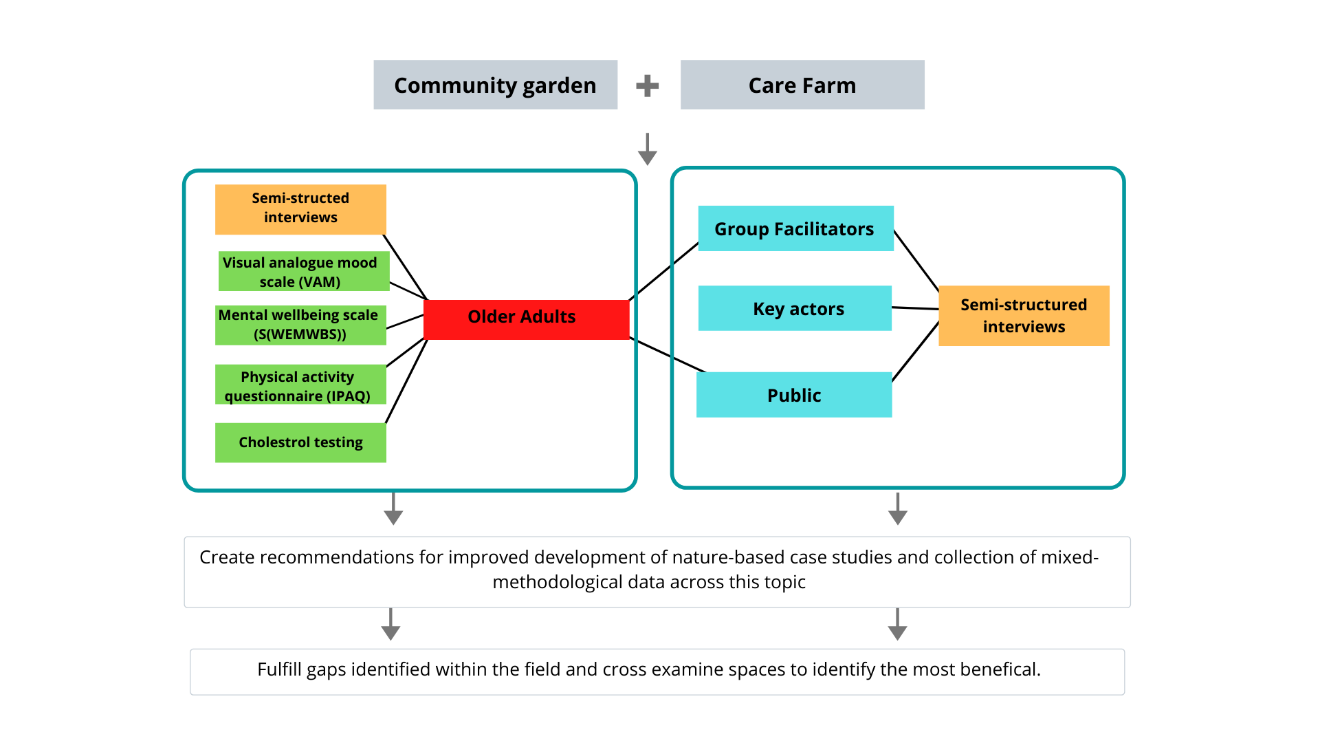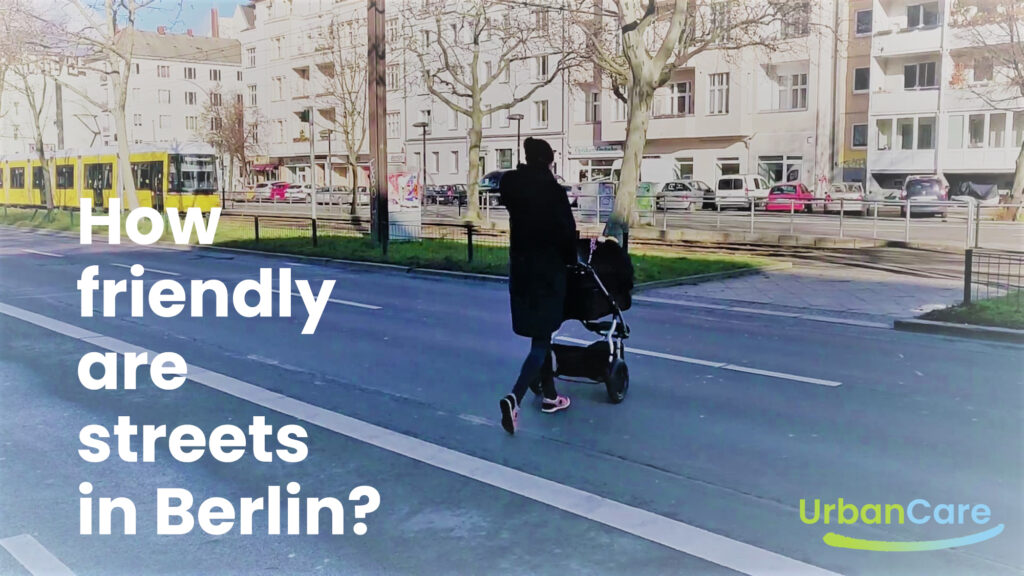City Know-hows

Target audience
Organizations involved in nature-based solutions or Green Care activities, health promotion professionals, and communities.
The problem
There has been an increased desire to use nature to tackle health inequalities, especially due to the recent covid-19 pandemic but also through prescribing access and activities outdoors. In particular this has been growing in the United Kingdom in the form of community gardens and care farms, but we need to increase our understanding of the impacts on health to further advocate for the expansion.
What we did and why
We raise awareness of the value of interventions such as community gardens and care farms, while advocating for radical methods to be embedded in research and present their use in a case study based around these sites.
Our study’s contribution
We add:
• Awareness of interventions and research in the use of nature for health and wellbeing
• An outline of pilot radical methods employed for use in research projects.
• A discussion of the limitations of interdisciplinary methods within the world of health geography
Impacts for city policy and practice
We suggest an increased awareness of the value of outdoor spaces across all populations, but research into the field being done so in a careful and crafted way to ensure protection of participants when investigating the impacts of health and wellbeing.
Further information
Full research article:
Mind, body and blood: advancing green care through innovative methodologies within the field of health geography by Louise M. Mitchell, Michael Hardman, Michelle L. Howarth & Penny A. Cook
Related posts


Researchers demonstrated empirically that COVID-19 lockdowns damaged mood. In fact, their results indicate that there is a negative relationship between household density and the mood

Looking at city water features as therapeutic blue urban spaces. Based on the architectural redesign of a water fountain in Valetta Malta. We studied its restoration and conservation to understand its potential influence as a therapeutic blue urban space in the public realm.